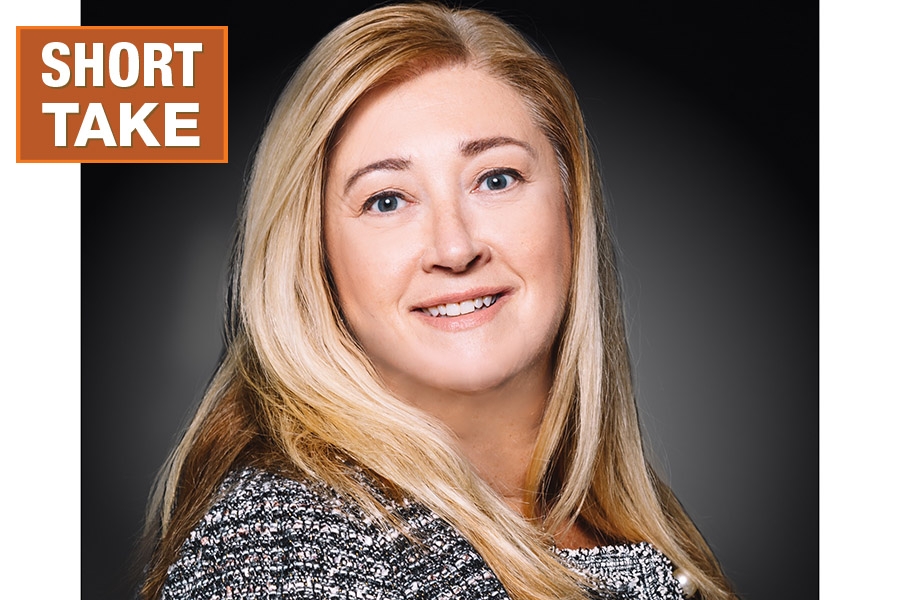The regional head of First Interstate Bank reveals what types of businesses have tapped PPP loans in the second round, and how the program has helped it win new customers.
The rollout of the second installment of the Paycheck Protection Program (PPP) is underway, with more than $1.4 billion of loans approved so far in Oregon in 2021, according to the U.S. Small Business Administration (SBA).
The second round of PPP is more targeted at small businesses, with loan limits of $2 million this time, compared with $10 million in the first round. Eligible businesses need to have fewer than 300 employees, compared with 500 in the first round. The most recent round of funding is also open to more types of businesses heavily impacted by COVID-19, such destination-marketing organizations and housing cooperatives.
Tawnie Nelson, regional president at First Interstate Bank, says she is seeing small businesses coming forward for loans for the first time in the second round, and companies are being more strategic about lending.
What kind of businesses are applying in this second round?
Interestingly, we are seeing a vast array of businesses that are applying in the second round. Initially, there was some uncertainty about how much interest there was going to be. We are seeing small businesses that did not apply in the first round and that are applying in the second round.
Portland is a larger urban market, but we are seeing as much interest in our rural markets as we are in our urban markets. There is a lot of question-asking and businesses wanting information.
What is the geographic scope of lending?
Our lending scope is predominantly outside of Portland. We focus on rural communities. We have really seen interest in rural communities — whether that is Southern Oregon, Eugene, Medford, Redmond, the Gorge area, or some of our smaller communities like Sisters and Klamath Falls.
To what extent are rural businesses impacted worse financially than urban businesses?
Rural communities haven’t necessarily been hit harder than urban markets. They are just impacted differently, and their timeline is a little longer. They take longer to go into a downturn, and it takes a little longer for them to come out.
What I have observed is that maybe there are more rural businesses that were reluctant to take the money in the first round. They may have wanted to wait and see if it was too good to be true. We are seeing rural communities take advantage in round two.
To what extent have businesses had to repay loans from the first round?
I don’t have specific numbers I can share. There are a lot of loans that are being forgiven by the SBA. If the monies were borrowed with the intention of keeping employees employed and making sure their business remained an ongoing concern, I have been pleasantly surprised at how smoothly the SBA process has worked around forgiveness.
As long as a business owner keeps track of all their records, payroll and expenses, does a good job documenting their finances, and follows the program as it was set out, there has been a really high level of forgiveness taking place.
How have your staff coped with the extra workload?
This time we understand the process better. We have a better level of empathy and understanding from a business owner’s perspective; this is really important to business owners — whether they are taking their first PPP draw or it is their second, this is critical to their livelihood.
We have been staffing with all hands on deck. We have bankers working very long hours. But this is where community banking shines. We really can make a difference in our community. We had a break and space from the first round. We have come into this second round with a lot of wind in our sails.
What is the biggest benefit to you from processing federal loans?
Knowing that we are doing our part in the communities — it is peace of mind. Also, for a bank it is reputational. A bank is only as great as its reputation and how it takes care of its communities. This is our way of being able to step up and utilize the government program as well as our expertise. For us, it is really a lot of goodwill. There have been great opportunities that have come out of it. We were able to help small businesses that did not bank with us. We earned some new business.
If businesses did not get these loans, what would be the consequences?
Without a doubt, many of these businesses would not have survived. There is no doubt that we have made great progress in the pandemic with the vaccinations, but we are not through to the finish line yet, so these funds have been vital to keep many small businesses alive and their employees employed. There is no question this was a critical program the government put together.
What is different in this round is there was fear that the money was going to go quickly in round one. There was a rush to take action. This round, businesses are really working with their accountants and bankers and are more strategic versus the first round, where people just felt they needed to get the money and then figure out later if that was enough.
To subscribe to Oregon Business, click here.






